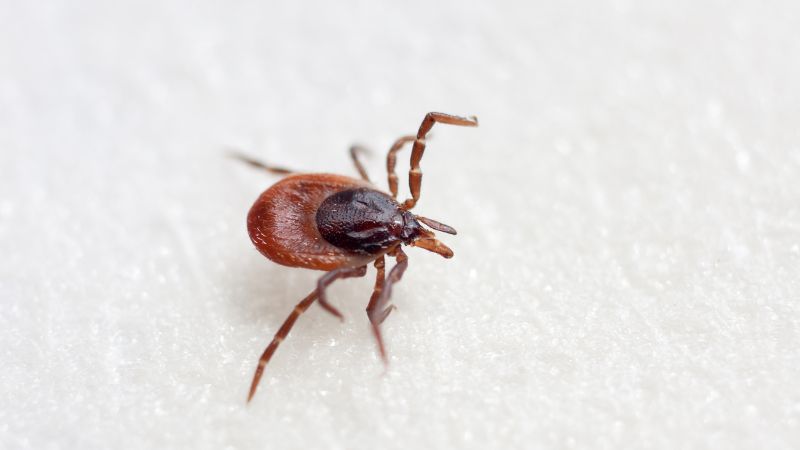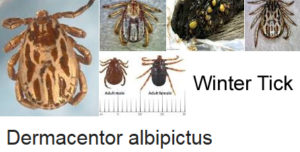Finding a tick in the winter months might come as an unwelcome surprise!
Ticks are most active in warm seasons, but it’s important to be aware that ticks can still be active during milder winter days. If you find a tick on yourself, a family member, or your pet during the winter, it’s imperative to take prompt action to remove it to reduce the risk of tick-borne disease transmission.

Here’s what you should do if you find a tick in the winter:
1. Keep Your Composure
If you are not completely focused and calm when you find the tick, it might lead to erroneous removal…which leads us to the next step!
2. Remove the Tick:
Get a firm grasp on the tick as close to the skin as possible using fine tipped tweezers. Do not twist or pull too quickly to avoid leaving mouthparts beneath your skin. Gently, but firmly pull upward with steady pressure. Take your time to ensure proper removal.
3. Dispose of the Tick:
In Massachusetts, you can have your tick tested. Once removed, place the tick in a sealed plastic freezer bag. Sending your tick for testing is highly recommended if you believe it has been attached long enough to pass disease pathogens. Otherwise you can place the tick in a sealed plastic bag with a bit of rubbing alcohol and throw it away.
4. Clean the Area:
Once the tick is removed thoroughly clean the bite site with warm, soapy water. You can follow up with disinfectant, such as rubbing alcohol.
5. Monitor for Symptoms:
Keep an eye on the bite site for any signs of infection or allergic reaction, such as redness, swelling, or rash. Tick-borne illnesses, such as Lyme disease or Rocky Mountain spotted fever can result in a rash plus myriad other symptoms. These can include fever, headache, fatigue, and muscle aches. If you develop any unusual symptoms, seek medical attention promptly.
6. Prevent Future Encounters:
If you live in an area, where ticks are prevalent, you can minimize your risk for tick encounters with professional tick control. This may include wearing long sleeves and pants, using insect repellents or wear permethrin-treated clothing. Professional Reading tick control is available in and should be employed at least from springtime through fall.
Stay informed, stay vigilant, and stay safe.
 Our neighbors to the north are facing a difficult decision about controlling the
Our neighbors to the north are facing a difficult decision about controlling the  Winter ticks are not vectors for serious disease, but that doesn’t mean they are not deadly. Winter ticks hatch in the fall, and begin questing for their host. In Vermont, their main host is the moose. Once they attach for their blood meal, they remain on the host through the nymph and adult stages. As adults, they mate. The females drop the ground to lay their eggs at the end of winter, and then die. The issue is, the amount of ticks that are attaching to the moose population is enormous. Less than half of new moose calves are surviving, due to blood loss, and birth rates have fallen. One adult moose was found to host
Winter ticks are not vectors for serious disease, but that doesn’t mean they are not deadly. Winter ticks hatch in the fall, and begin questing for their host. In Vermont, their main host is the moose. Once they attach for their blood meal, they remain on the host through the nymph and adult stages. As adults, they mate. The females drop the ground to lay their eggs at the end of winter, and then die. The issue is, the amount of ticks that are attaching to the moose population is enormous. Less than half of new moose calves are surviving, due to blood loss, and birth rates have fallen. One adult moose was found to host